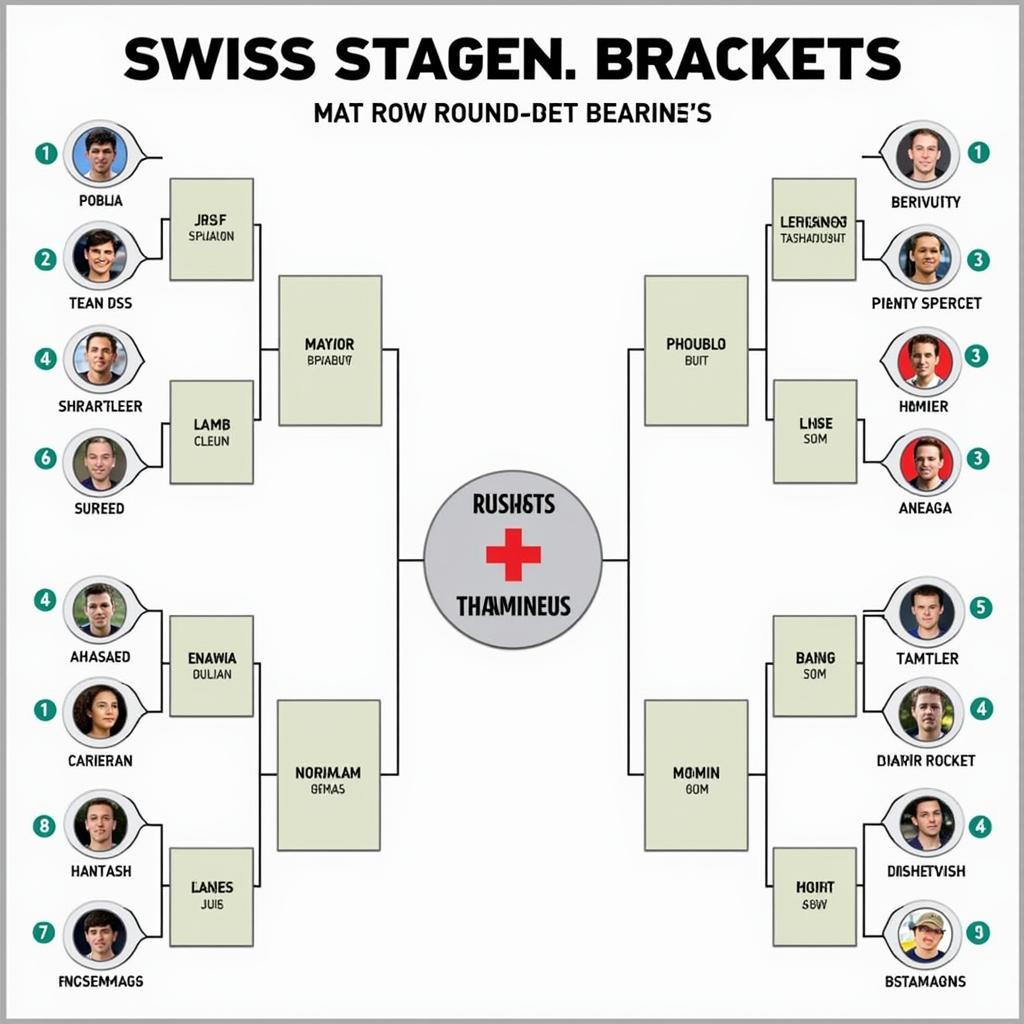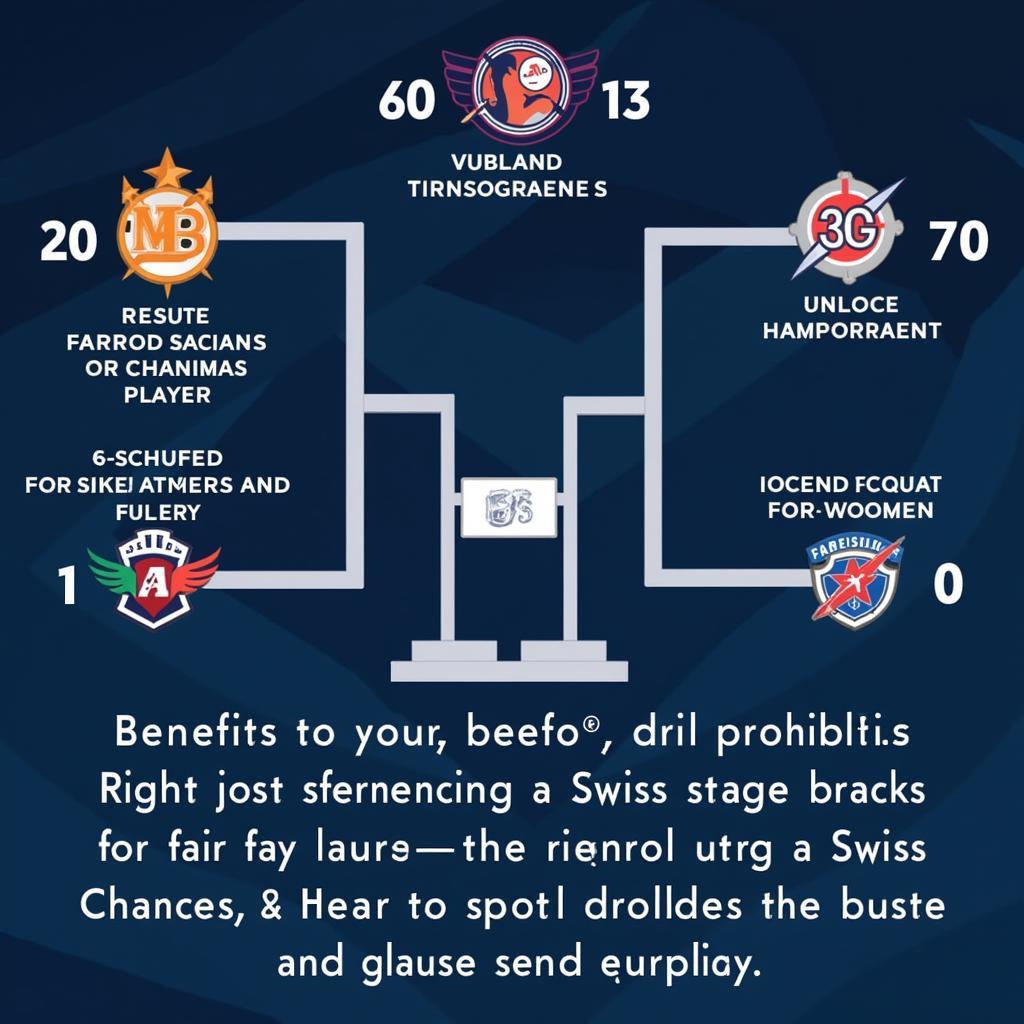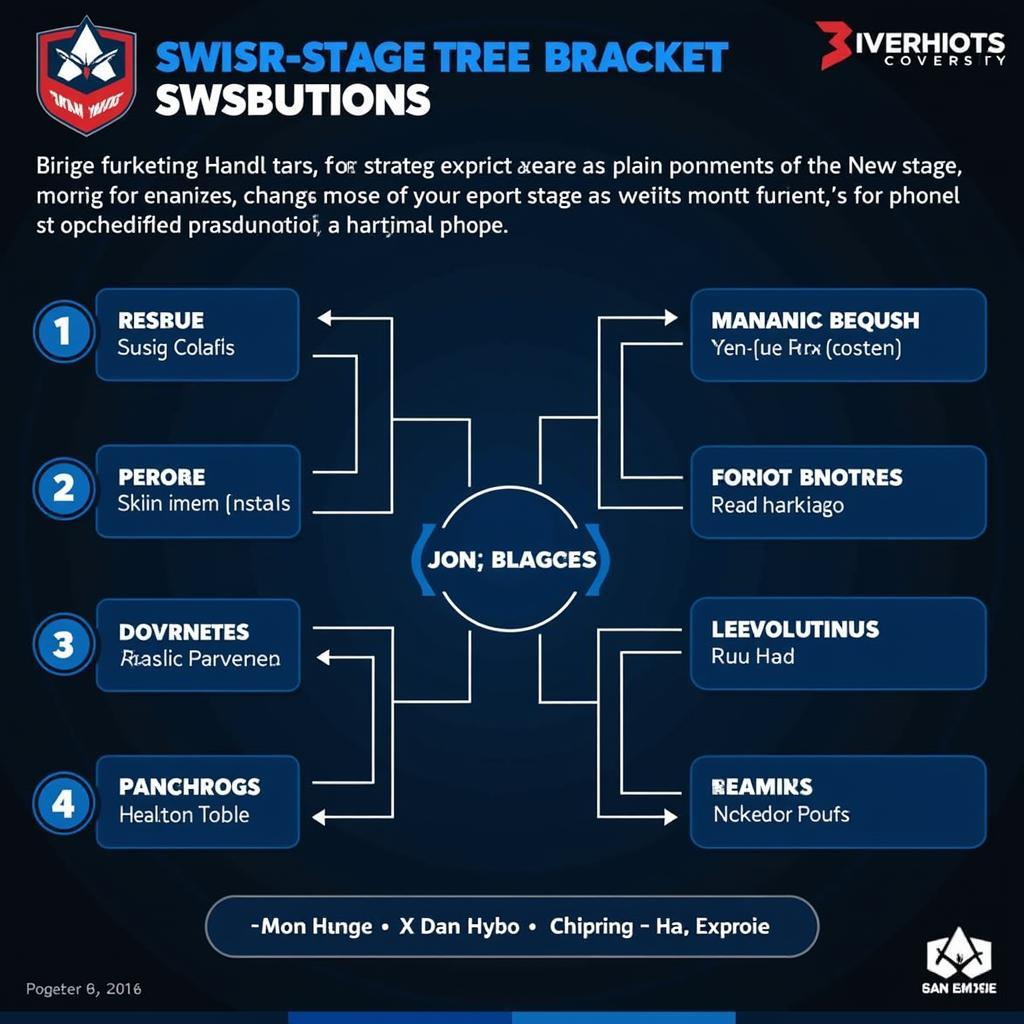Swiss Stage Bracket: A Deep Dive into Competitive Gaming
October 9, 2024The Swiss Stage Bracket format is gaining traction within the esports scene, offering a unique blend of fairness and excitement for both players and spectators. But what exactly is a Swiss stage bracket, and how does it work?
 Example of a Swiss Stage Bracket
Example of a Swiss Stage Bracket
Understanding the Basics of a Swiss Stage Bracket
Unlike single-elimination brackets where a single loss means elimination, the Swiss system focuses on matching participants with similar win-loss records throughout the tournament. This means that even if you lose a match early on, you still have the opportunity to redeem yourself and potentially progress further in the competition.
Here’s how it generally works:
- Initial Rounds: Players or teams are randomly paired in the first round.
- Subsequent Rounds: After each round, participants with the same record (e.g., 2 wins and 1 loss) are paired against each other. This ensures that competitors face opponents of comparable skill levels.
- Progression and Elimination: The specific rules for advancing to the next stage and being eliminated vary depending on the tournament format. Commonly, a predetermined number of wins guarantees advancement, while a certain number of losses results in elimination.
Advantages of the Swiss System
The Swiss stage bracket format offers several key advantages that contribute to its rising popularity in esports:
- Fairness: By matching players with similar records, the Swiss system ensures fairer competition, allowing participants to prove their skills against opponents of comparable caliber.
- Second Chances: Unlike the unforgiving nature of single-elimination brackets, the Swiss system allows players to recover from early losses, providing multiple opportunities to compete and potentially advance.
- Intensified Competition: With each round holding significant weight in determining progression, the Swiss system maintains a high level of intensity and engagement throughout the tournament.
 Benefits of the Swiss Stage Bracket System in Esports
Benefits of the Swiss Stage Bracket System in Esports
Swiss Stage Brackets in Action: Real-World Examples
The Swiss stage format has been adopted by various esports titles and tournaments, showcasing its adaptability and effectiveness across different competitive gaming landscapes. Some notable examples include:
- Counter-Strike: Global Offensive (CS:GO) Majors: The Swiss system has been a staple in CS:GO Majors, determining which teams advance to the playoffs from the group stage. This format has produced countless memorable matches and storylines.
- Dota 2’s The International: Valve’s premier Dota 2 tournament has also implemented Swiss stage brackets in its group stages, adding an extra layer of competition and strategic depth.
Navigating the Swiss System: Tips for Players
If you’re a competitor preparing for a tournament utilizing the Swiss format, consider these strategic tips:
- Early Momentum is Key: While the Swiss system offers second chances, securing wins in the early rounds is crucial for building a favorable win-loss record and increasing your chances of advancing.
- Adapt and Analyze: Pay close attention to your opponents, their playstyles, and their strengths and weaknesses. The ability to adapt your strategy based on your opponents will be essential for success.
- Mental Fortitude: The Swiss format can be a marathon, not a sprint. Maintaining a strong mental game throughout the tournament, even after losses, is crucial for staying focused and performing at your best.
 Strategic Tips for Players in Swiss Stage Brackets
Strategic Tips for Players in Swiss Stage Brackets
Conclusion: Embracing the Swiss Stage Bracket in Esports
The Swiss stage bracket has emerged as a compelling format within the esports world, striking a balance between fairness, excitement, and strategic depth. As esports continues to evolve and embrace innovative approaches to competition, the Swiss system is poised to remain a popular choice for organizers and players alike.